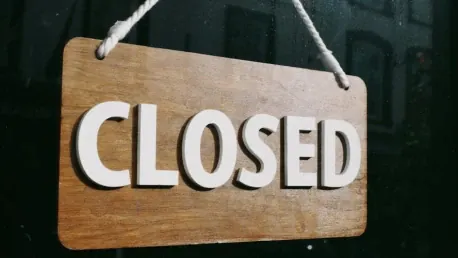The UK retail sector is bracing for a potentially turbulent end to the year as the government contemplates tax hikes that could drastically impact consumer spending during the crucial Golden Quarter. A recent survey conducted by RSM UK paints a grim picture: 42% of consumers and 45% of families are planning to cut back on their Christmas shopping if taxes rise in the upcoming budget. This possible downturn in consumer confidence comes on the heels of a significant drop already recorded in September. The anticipated tax increases could spell disaster for retailers who have been grappling with lukewarm sales throughout the year, resorting to substantial discounting tactics just to coax buyers into stores.
Jacqui Baker, a partner and the head of retail at RSM UK, has highlighted the frailty of both consumer and business confidence in the current climate. Retailers are anxious about an array of rising costs compounded by impending regulatory shifts. Among these changes are new sexual harassment prevention laws, which will necessitate proactive measures for staff protection. Added to this are amendments proposed under the Employment Rights Bill, aimed at granting employees statutory sick pay from day one of employment. While these legislative updates are designed to enhance workplace protections, they also impose additional compliance and financial burdens on an already strained retail sector. These new laws need to be incorporated into existing business practices, which could become a logistical and financial nightmare for many retailers.
Rising Employment Costs and Regulatory Changes
The retail industry, being a significant employer, is particularly wary of potential increases in employment costs that the upcoming budget might bring. There is speculation that the budget could include heightened National Insurance contributions for employers, coupled with another rise in the National Minimum Wage. Such increases would inevitably escalate operational costs for retailers. The combined weight of these financial pressures could push many businesses to the brink, especially smaller retailers who operate on thin margins and can ill-afford these additional expenditures. The prospect of increased employment costs comes at a time when the retail sector is already absorbing numerous blows from various quarters.
Baker has emphasized the acute need for government intervention, pointing out that without decisive action, the retail industry could face a wave of high street closures. Retailers are urging the government to fulfill its promises, particularly by overhauling the business rates system with a more manageable, permanent multiplier. There are also calls for the reintroduction of tax-free shopping to lure international tourists back to UK stores, a move that could significantly boost sales and provide much-needed relief. These proposed measures are seen as indispensable for stabilizing the sector and ensuring its long-term viability. Without such governmental support, many fear that the sector could collapse under the weight of these combined pressures.
Consumer Confidence and Economic Resilience
The findings of the RSM UK survey underscore a significant drop in consumer confidence, which poses a considerable threat to retailers as they prepare for the economically vital Golden Quarter. This crucial period, encompassing the lead-up to Christmas and the end of the year, is when many retailers make a substantial portion of their annual revenue. Any decline in consumer spending during this time can have severe repercussions for the entire retail ecosystem. The survey results reveal that consumers are already thinking about tightening their belts, a reaction largely driven by fears of tax hikes and economic uncertainty. This sentiment is particularly pronounced among families, who are even more likely to cut back on expenditures.
The overall analysis points to a potentially bleak scenario for the retail sector if tax increases proceed without adequate government support measures. Retailers argue that without interventions such as policy adjustments and financial relief, the industry could see a rise in high street closures. The situation demands urgent government action to stabilize the sector and restore consumer confidence, which is paramount to ensuring economic resilience amid these challenging times. Keeping consumer sentiment buoyant and business operations manageable would go a long way in preventing a downward spiral leading to widespread economic distress. The retail industry’s calls for support are not just about surviving the present but ensuring a sustainable future.
Conclusion
The UK retail sector is preparing for a potentially rough year-end as the government considers tax hikes that could significantly reduce consumer spending during the critical Golden Quarter. A recent RSM UK survey reveals a troubling trend: 42% of consumers and 45% of families plan to cut back on their Christmas shopping if taxes rise in the forthcoming budget. This potential decline in consumer confidence follows a notable dip already seen in September. The expected tax increases could be disastrous for retailers who have faced sluggish sales all year, using hefty discounts just to attract customers.
Jacqui Baker, a partner and head of retail at RSM UK, emphasized the vulnerability of consumer and business confidence in the present climate. Retailers are worried about increasing costs exacerbated by upcoming regulatory changes. These include new sexual harassment prevention laws requiring proactive employee protection, and amendments in the Employment Rights Bill aiming to provide statutory sick pay from the first day of work. While these laws intend to improve workplace protections, they also present additional compliance and financial challenges for a retail sector already under stress. Adapting to these changes could create logistical and financial hurdles for many businesses.









